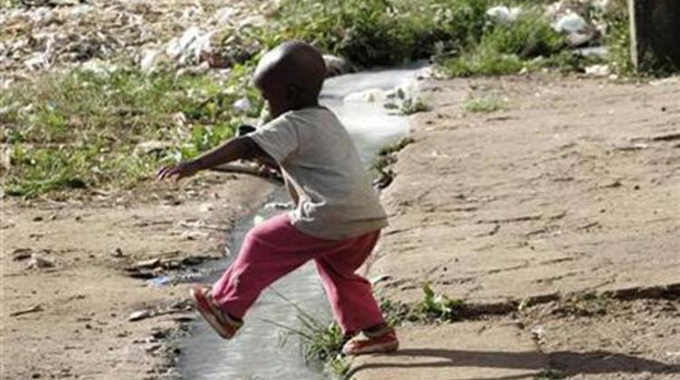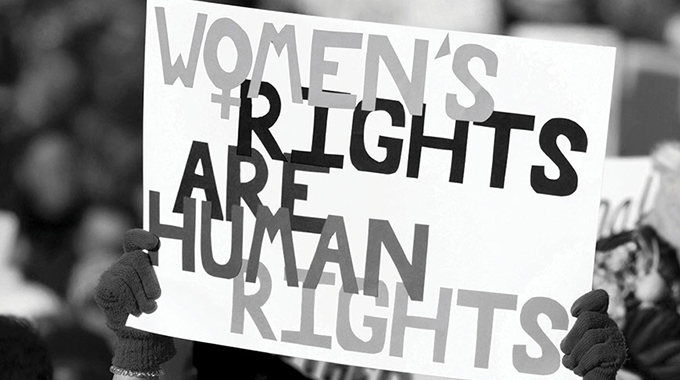A new innovation to reduce child pneumonia deaths in Zimbabwe

Pius Sawa Murefu Correspondent
Pneumonia can be deadly for children under the age of five, but it can be treated with the right diagnosis and medical intervention.
However, the cost of such tests is beyond the reach of many families in Zimbabwe.
Pneumonia is caused when fluid enters the lungs and causes inflammation of the air sacs, disturbing the process of gaseous exchange and, in some cases, leading to death.
Chest X-rays are commonly used to diagnose pneumonia, but in Zimbabwe they are expensive — US$50 — which is a lot of money for most families.
As a result, people are often forced to opt for a physical examination, which is a cheaper alternative, but prone to observer error.
In some cases, doctors mistake pneumonia for malaria until it reaches its later stages. By that point, it’s too late.
To help solve the challenge, two students from Ashesi University in Ghana have designed a low-cost solution that could lead to better diagnoses and save lives.
The DeepEye Initiative was started by 24-year-old Esau Mhandu from Murehwa, Zimbabwe, and his Ugandan partner Ronald Tumuhairwe, also 24.
The two recent graduates met while studying in Ghana as Mastercard Foundation Scholars.
Raised in a child-headed family in the small village of Murehwa, Esau experienced first hand the frustration of not being able to afford medical services.
The DeepEye Initiative has developed a device that uses sound waves to detect the presence of fluid in a child’s lungs.
The waves are transmitted through the chest of the patient and heard through their back using a stethoscope.
The sound waves are then analysed to determine their strength as they travel through different mediums.
The difference in the strength of the waves is used to distinguish a pneumonia-consolidated lung from a healthy one.
“Sound will travel differently in healthy lungs filled with air than it will in pneumonia-consolidated lungs with fluid,” explained Tumuhairwe.
The cost for testing with this device would be US$15.
DeepEye Initiative won the 2019 Resolution Social Venture Challenge, a competition that rewards compelling leadership and promising social ventures led by youth.
These young leaders and change-makers earned a fellowship that includes seed funding, mentorship, and access to a network of young global change-makers to pursue impactful projects in their communities.
A collaboration between the Mastercard Foundation and The Resolution Project, the Resolution Social Venture Challenge provides a pathway to action for socially responsible young leaders who want to create change that matters in their communities.
Tumuhairwe and Mhandu hope to target more than two million children under the age of five in Zimbabwe and hope their device will benefit children in other African countries.
The team has already designed and developed the prototype and tested it using a lung phantom, a sponge which models the human lung, and has produced accurate results.
“Currently, we are aiming to submit the device and research to the International Review Board at the American University of Beirut for approval, since the device is specialized for human subjects,” said Tumuhairwe.
Tumuhairwe and Mhandu are optimistic that their initiative will save lives by making it easier for people to seek treatment for the most treatable diseases.
DeepEye Initiative provides an alternative to this lack of medical devices to diagnose pneumonia at a lower and affordable cost.
As DeepEye Initiative waits for the approval of its device by the International Review Board, Mhandu says that his dream is to save African children from dying.
“I envision an Africa in which the under-five child mortality rate is reduced, because we are currently losing generations of children who might be key to the development of Africa,” he says. “My vision is to develop devices for the diagnosis and treatment of diseases, thus improving the well-being of my society.
“According to UNICEF, only 51 percent of children under the age of five suspected to have pneumonia are taken to hospital, 10 percent of the 51 percent are misdiagnosed, contributing to the high risk of death.”










Comments